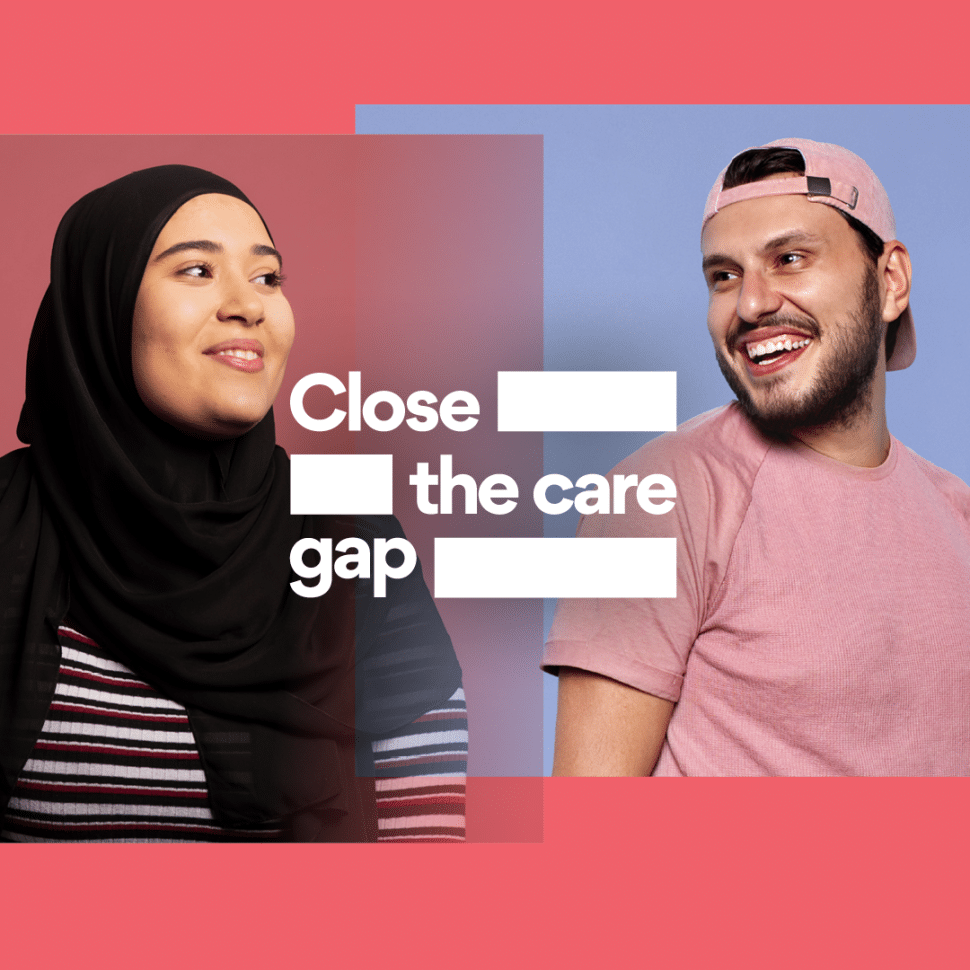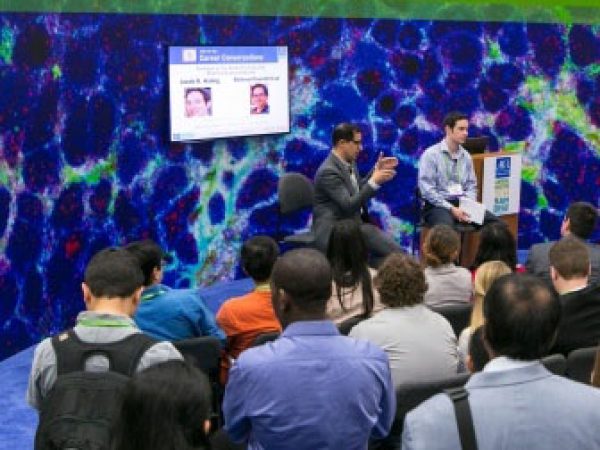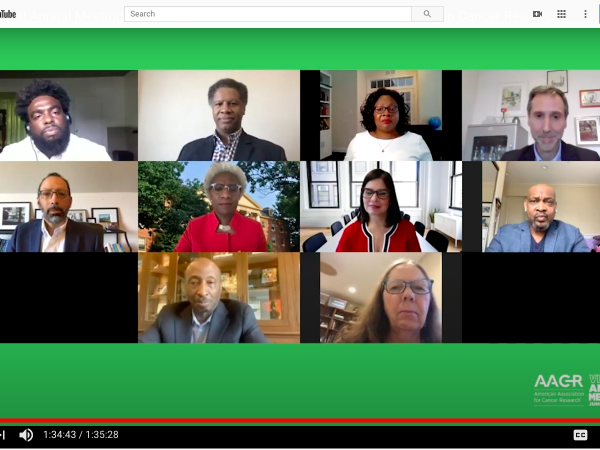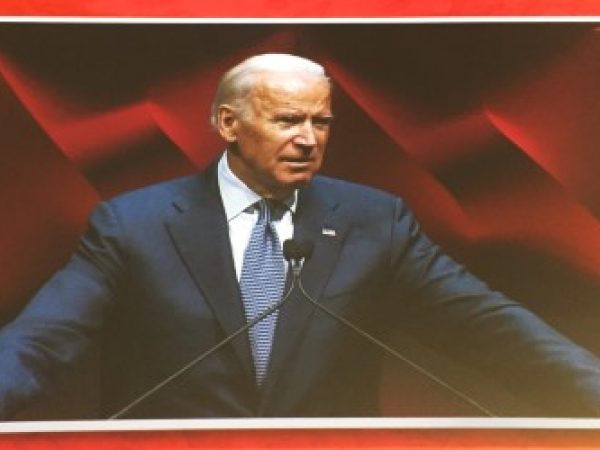World Cancer Day and the AACR: Taking Aim at Disparities
In the United States, advances in cancer research have dramatically improved outcomes for children diagnosed with cancer. While pediatric cancer remains a devastating diagnosis, approximately 80 percent of children survive their disease.
For children in many low- and middle-income countries, their prognosis is much less favorable. In some corners of the world, only about 20 percent of children diagnosed with cancer survive.
The drastic contrast in survival underscores the theme of World Cancer Day, an initiative by the Union for International Cancer Control (UICC) that aims to raise awareness and education about cancer. For the next three years, World Cancer Day will focus its efforts on a campaign titled “Close the Care Gap.”

This message aligns strongly with the goals of the American Association for Cancer Research (AACR), which has been a leading force in the effort to eliminate cancer health disparities.
The need to close the care gap is urgent. Disparities encompass race, ethnicity, geography, socioeconomic standing, age, gender and sexual identities, and more. A small sampling of disparities, according to the UICC:
- In New Zealand, the indigenous Māori people are twice as likely to die from cancer as non-Māori;
- More than 90 percent of cervical cancer mortality occurs in low- and middle-income countries;
- In refugee populations, cancer is more likely to be diagnosed at an advanced stage, leading to worse outcomes;
- Rural patients experience poorer cancer-related outcomes than those who live in nonrural settings, even in higher-income countries.
For the next three years, World Cancer Day will focus on shining light on these disparities by providing educational materials, highlighting successful interventions, and encouraging public support through initiatives like their 21-Day Challenge.
“We are all working together to reimagine a world where millions of preventable cancer deaths are saved and access to lifesaving cancer treatment and care is equitable for all—no matter who you are or where you live,” notes the UICC’s website.
What is the AACR doing to combat cancer health disparities?
The AACR has been a leading voice in cancer disparities research, providing multiple forums for groundbreaking advances in the field. Each year, our organization convenes the AACR Conference on the Science of Cancer Health Disparities in Racial/Ethnic Minorities and the Medically Underserved. Heading into its 15th year, the conference provides a robust forum for the latest research in this transdisciplinary field.
In September 2020, the AACR published the inaugural edition of the Cancer Disparities Progress Report. Aimed at raising awareness of the enormous toll cancer exacts on racial and ethnic minorities and other underserved populations, the report included a call to action seeking concrete changes in disparities research and public policy.
For more than 20 years, the AACR’s Minorities in Cancer Research (MICR) membership group has supported the professional needs of racially and ethnically diverse cancer researchers. Today, MICR has more than 7,000 members who strive to increase the number, participation, visibility, and recognition of minority scientists in the cancer research field and within the AACR.
In November, the AACR, in collaboration with the National Medical Fellowships, will launch the Bristol Myers Squibb Foundation Diversity in Clinical Trials Career Development Program. This educational workshop will introduce early-stage investigators from underrepresented groups, or physicians who have a demonstrated commitment to increasing diversity in clinical research, to the principles of effective clinical trial design and community engagement. Participants will be encouraged to devote all or a portion of their future careers to some aspect of clinical research in underrepresented populations.
As the new World Cancer Day campaign makes clear, disparities are a global problem, and the AACR’s International Affairs office orchestrates several programs that support the development of a highly skilled scientific global work force to combat cancer disparities. The COVID-19 pandemic has only increased the urgency of these needs, as low- and middle-income countries have experienced more limited resources, poor infrastructure, shortage of health care providers and organized care teams, scarcity of medical supplies and personal protective equipment (PPE), and poor access to technology.
The AACR has adapted and amplified its efforts to support the scientific work force in low- and middle-income countries. For example, the Global Scholar-in-Training Awards program has remained robust throughout the pandemic, enabling early-career researchers from Argentina, Brazil, China, Colombia, Egypt, Ethiopia, The Gambia, India, Malaysia, Mexico, Nigeria, Pakistan, South Africa, and Turkey to attend the virtual AACR Annual Meeting in 2020 and 2021. Many GSITA attendees reported that they intend to use the knowledge gained at the Annual Meeting to improve health care in their home countries.
In 2021, the AACR launched AACR on Campus, a global outreach program that will provide continuing education at cancer centers around the world. AACR on Campus will draw upon locally relevant perspectives to educate providers on the latest advances in cancer research. The first session, held virtually, focused on implementation science in Latin American nations.
The AACR is also working to diversify the scientific work force through a large and growing number of career development research grants, including one that will begin this year. Starting in July, the AACR Cancer Disparities Research Fellowships will provide two-year grants to support postdoctoral or clinical research fellows as they conduct cancer disparities research, with the goal of helping them establish successful career paths in this field.
The grants programs augment the AACR’s efforts to cultivate a strong, diverse scientific work force. In the past few years, we’ve partnered with Genentech, the Lustgarten Foundation, Bristol Myers Squibb, and the Breast Cancer Research Foundation on several career development grants. For further information, including a list of funding opportunities, please see our website.
These efforts support the AACR’s mission to prevent and cure cancer through research, education, and communication. They further support the aims of World Cancer Day. We’ll continue to write about our efforts to “close the care gap” and ensure that lifesaving advances against cancer are available to all.



